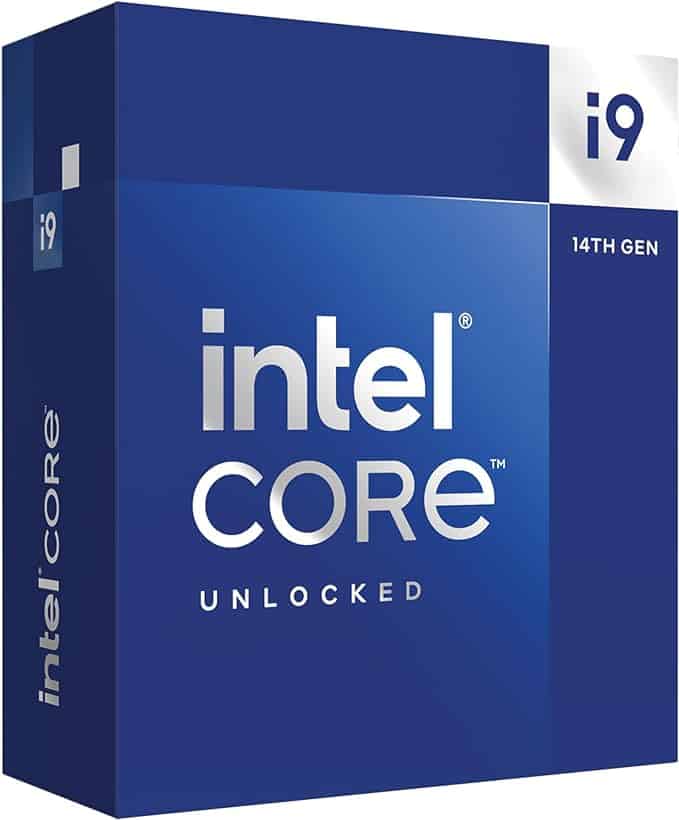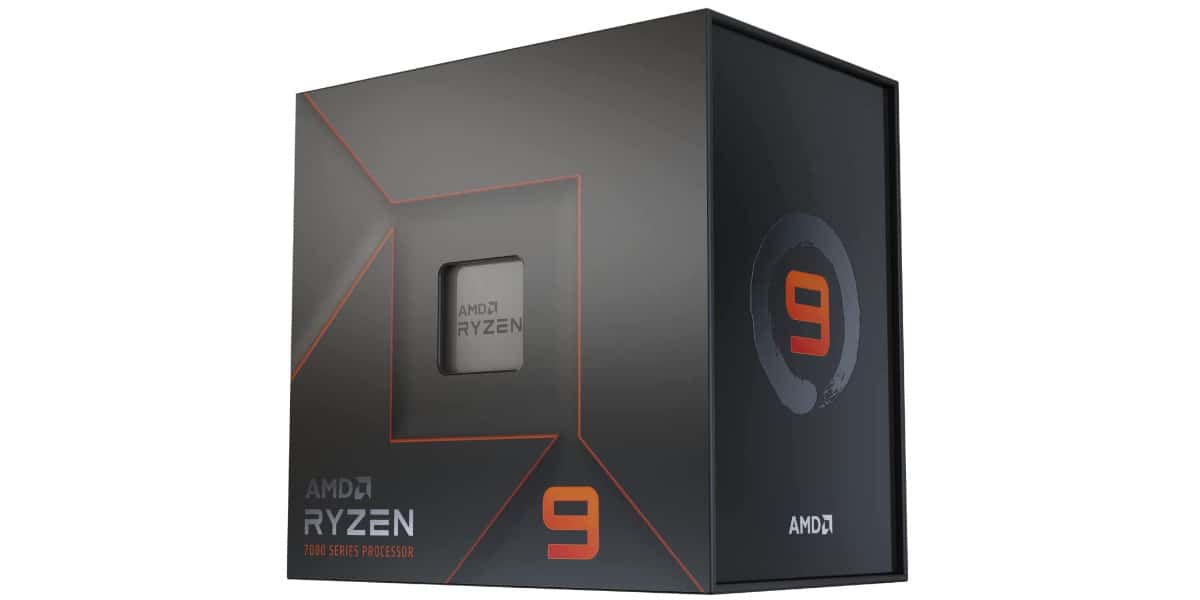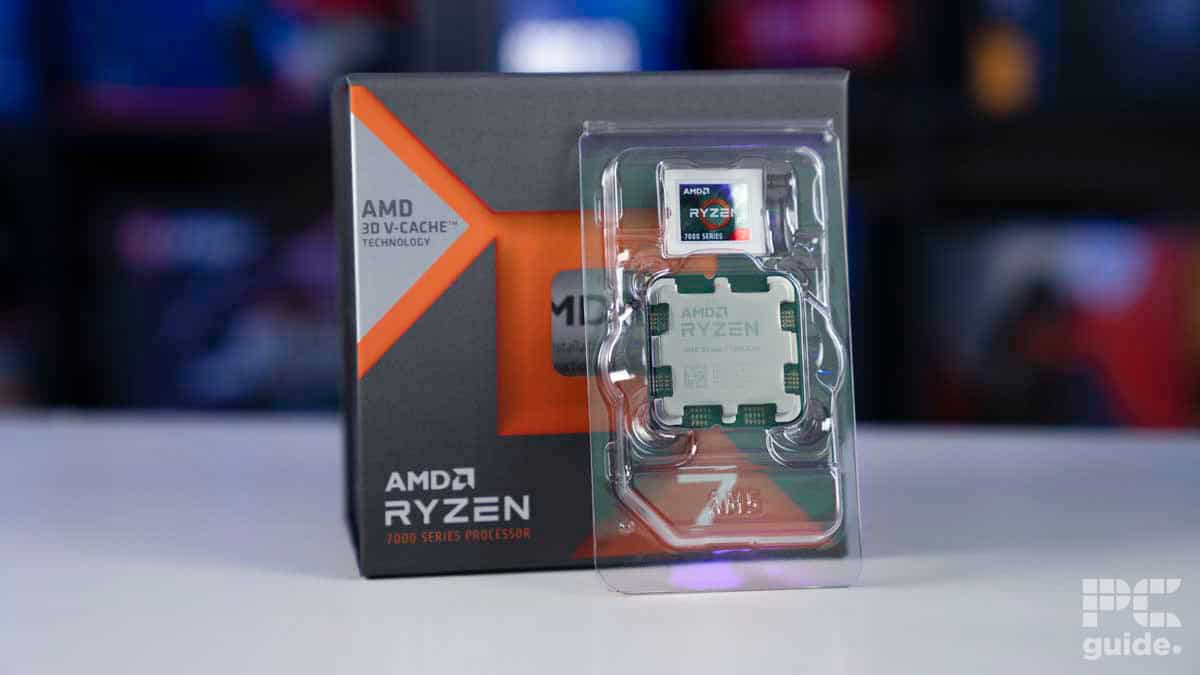AMD Ryzen 9 9950X vs Ryzen 9 5900XT – What difference does two generations make?

Table of Contents
AMD was all set to release these two processors but the Ryzen 9 9950X was delayed along with the rest of the Ryzen 9000 series processors as they weren’t satisfied with the quality. However, the fate of the Ryzen 9 5900XT was up in the air, but we’re glad to see that AMD released it on the original launch date, and you can now purchase the 5900XT to experience its beefed-up hardware.
That said, we were surprised to see this release because the new AM5 processors made sense, but going back to the roots established with AM4. Why? Good question, likely because AMD understands that a lot of its audience is still rocking the AM4 platform, myself included, and AMD themselves told us in an interview that they seek to keep AM4 in the running for some time yet. This is obviously AMD actioning that plan.
It does raise the question of when or if AMD will stop supporting AM4, but for now it seems we’re all safe from being abandoned. Here we have a showdown between the best of the best Ryzen 9000 series CPU, and the add-in runner-up 5000 series CPU. Which one is right for you?
If you want to know where to buy the Ryzen 9 9950X or where to get the Ryzen 9 5900XT, we have the resources for you.
AMD Ryzen 9 9950X
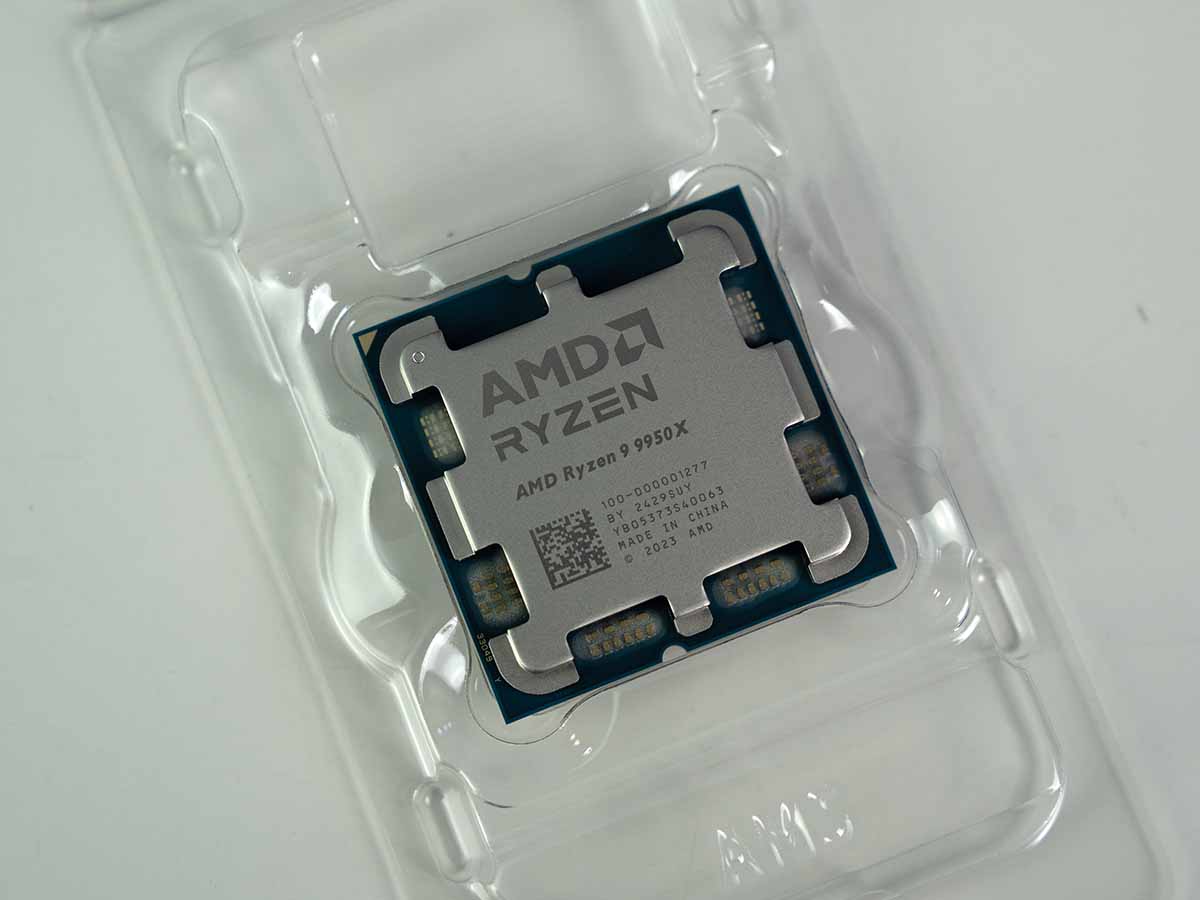
Cores
16
Threads
32
Boost clock speed
5.7 GHz
Base clock speed
4.3 GHz
L3 Cache
64 MB
TDP
170 W
Platform
AMD Socket AM5
Shop on Amazon
CHECK PRICEAMD Ryzen 9 5900XT
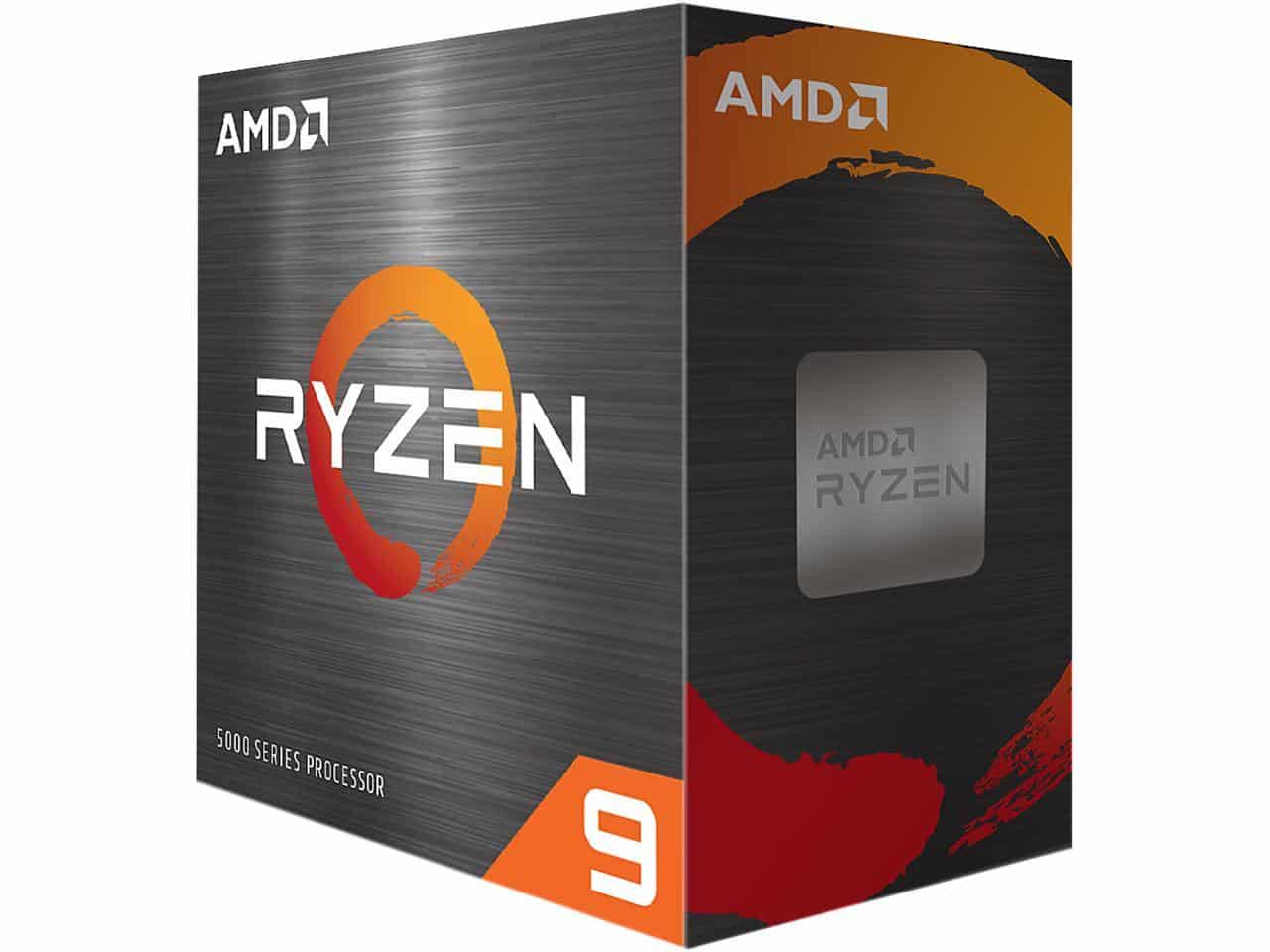
Cores
16
Threads
32
Boost clock speed
4.8 GHz
Base clock speed
3.3 GHz
L3 Cache
64 MB
TDP
105W
Platform
AMD Socket AM4
Shop on Amazon
CHECK PRICESpecifications
Both of the CPUs on this list have vastly different specifications, most notably that one belongs to the AM5 family and the other to AM4. This puts the AM4 CPU, the 5900XT, at a huge disadvantage in a comparison sense. Although it’s brand new, it’s still technically built on a platform that’s 2 generations behind, meaning it won’t really stand a chance against the 9950X.
Specifications comparison
| Specification | Ryzen 9 9950X | Ryzen 9 5900XT |
|---|---|---|
| Cores | 16 | 16 |
| Threads | 32 | 32 |
| Base Clock | 4.3GHz | 3.3GHz |
| Boost Clock | up to 5.7GHz | up to 4.8GHz |
| L3 Cache | 64MB (shared) | 64MB (shared) |
| TDP | 170W | 105W |
| PPT | 230W | 142W |
| Socket | AM5 | AM4 |
| Core architecture | Zen 5 | Zen 3 |
On paper and at first glance, these CPUs look similar, sure the 5800XT is a little slower, but it still has the same number of cores, right? Well, that’s where the CPU architecture comes in. Zen 5 is leaps and bounds ahead of Zen 3, and the computational power difference is incredible, it’s like having a Lamborghini race a Prius. Both of these CPUs may have the same number of CPU cores, but that means hardly anything.

Cores and threads
As we mentioned just now, the cores and thread numbers are exactly the same, meaning, on paper, they look similar, which is not the case. Zen 5 is built on a 4nm process, whereas Zen 3 is built upon a 7nm process. This refers to the size of the transistors in the CPU core, which is what does all of the calculating. The smaller these transistors the more you can pack onto a CPU die, making that CPU better at making calculations, because there are more transistors to solve instructions.
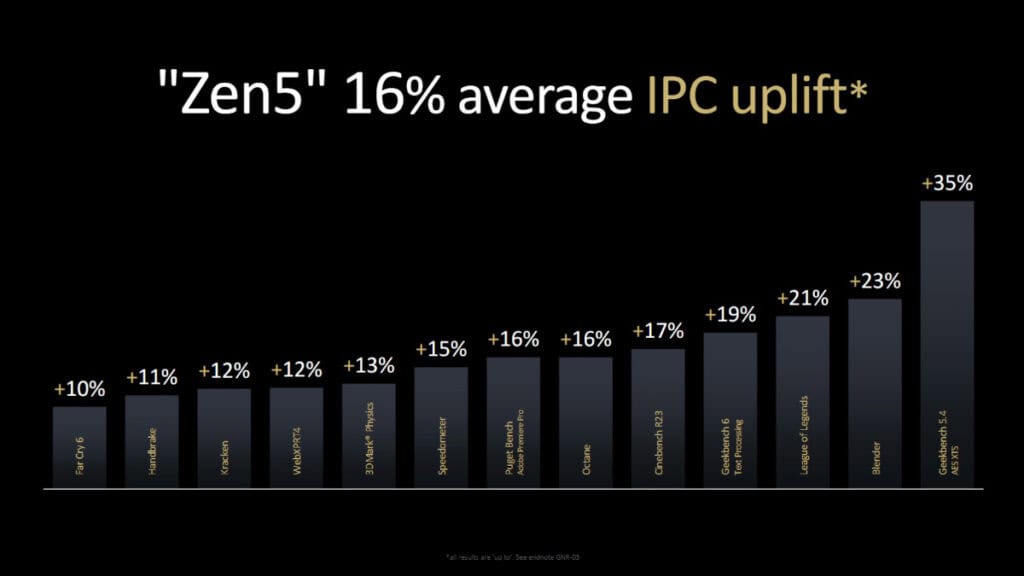
The IPC (instructions per core) uplift from Zen 3 to Zen 4 was about 14%, and then another 16% from Zen 4 to Zen 5, so you’re looking at some exponential performance growth here. What this all means is that the Zen 5 CPU cores are way better at processing information than the Zen 3 cores, they will do so much faster and with more efficiency.
Clock speed
There is a huge difference in clock speeds between these two CPUs, and you also have to bear in mind that each cycle is much more valuable in the 9950X than it is in the 5900XT, because of the core architecture we discussed earlier, that’s because each cycle carries more power because of the extra transistors. Not only that, but the 9950X can complete way more cycles per second than the 5900XT.
When we refer to a cycle, we are referencing the instruction cycle, this is the repetitive act of fetching and executing instructions, the more instructions from programs a CPU can handle, the better the IPC. In layman’s terms, the CPU is more powerful and can get more done per cycle compared to the 5900XT, so it’s a double whammy. Along with those you may find clocks boosting automatically or manually, but you may consider is overclocking worth it.
Cache
Interestingly enough the cache amounts vary in favour of the 5900XT, which has a massive 64MB at its disposal. The 9950X on the other hand, only has 32MB but it is much faster than that of the 5900XT. Cache is an important point to consider, as it is where all of the instructions are queued and stored for the CPU.
TDP and PPT
Given that the CPUs are wildly different, it only makes sense that the TDP and PPT metrics are different too. The Ryzen 9 9950X is the most power-hungry of the two, coming in at a respectable 170W TDP, whereas the 5900XT only needs 65W to keep things going.
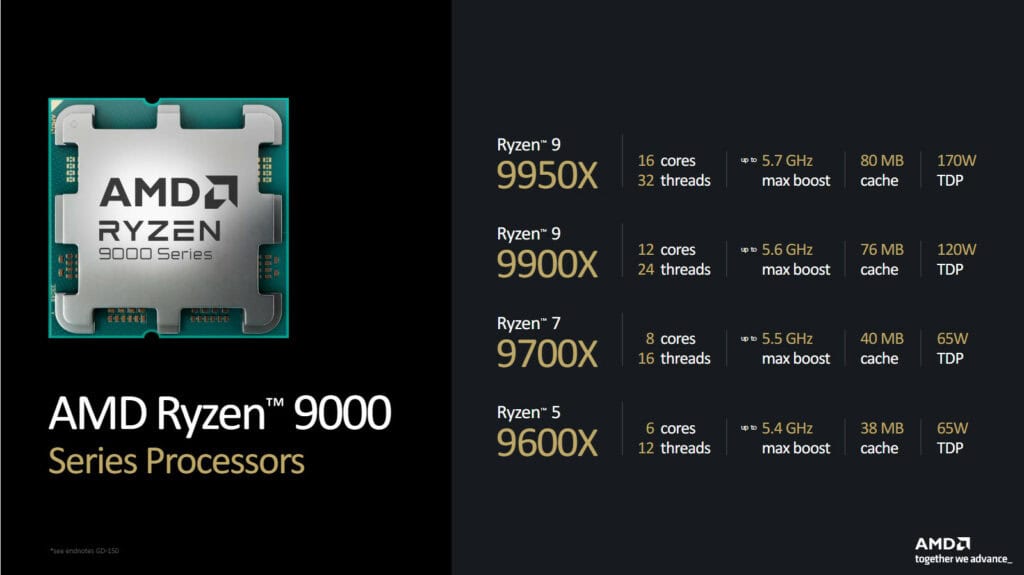
There is quite a huge difference in PPT, however, PPT is how much power the motherboard allows through the voltage rails to the CPU, this is a hard limit, so you’ll never get any more power through. You can expect the 9950X to drink the most juice with a 230W PPT, and the 5900XT to be the most efficient with an 88W PPT.
Only time will tell how the performance per watt will turn out to be, we’ll have to get our hands on both of them to find that one out. But these numbers suggest that the 5900XT will be vastly more power efficient than the 9950X.
Launch price of the 5900XT and 9950X’s price speculation
The launch price of the Ryzen 9 5900XT is $349. Whether that is justified or not, time and the consumer base will tell. That said, we’re still waiting for the 9950X to be released, as it is set to hit the shelves on 15th August. So, before that we can use the CPU release prices to predict what it may cost at launch, so let’s take a look at the prices of the previous generations.
- 7950X – $699
- 7600X – $299
- 5950X – $799
- 5600X – $299
- 14900KS – $689
- 14600K – $319
- 13900KS -$699
- 13600K – $319
Using this information, we can predict that the 9950X will sell for around $699. However, popular retailers have started putting up the listing, and the 9950X has a price tag of $599 or $649. We still recommend taking these figures with a pinch of salt and wait for the official release for full clarity.
Graphical capabilities
The only CPU we have on the list that has onboard graphics is the 9950X, which has an RDNA 3-based 2 Compute Unit GPU. If WePC’s testing of the RDNA 2-based 7000 series CPUs is anything to go off, we’d say that we have another capable iGPU here that will run everyday tasks with no problem.
If you’re just looking for a CPU that can do it all without a discrete GPU, then you have to opt for the 9950X, as this is the only option with onboard graphics, the graphics clock varies between 400 and 2,200MHz. Pretty impressive for a humble iGPU. However, we always recommend that you pick up a proper GPU.
How do these CPUs compare generationally?
Normally, we would discuss what has changed in these CPUs compared to the previous generation, but since these CPUs are generationally different, we thought we’d cover that.
These CPUs are built on completely different architectures, the 9950X being Zen 5 and the 5900XT being Zen 3, we discussed the intricacies and differences above, but we just want to hammer home how good Zen 5 will be when stacked up against Zen 3. You also require different hardware to run each CPU. The 5900XT will require an AM4 motherboard and DDR4 memory, whereas the 9950X will require an AM5 motherboard with DDR5 memory.
The Zen 5 AM5 CPU also offers a whole host of platform support and features that you just can’t get on AM4. Some of these include PCIe Gen 5 storage, up to 8,000MHz memory speed, PCIe Gen 5 graphics, USB 4 connectivity, and much more. All of these are available on the high-end X870e and X870 motherboards.
Alternatives to the 9950X and the 5900XT
-
Intel Core i9-14900K
- Cores: 24 (8P-16E)
- Threads: 32
- Boost clock speed : P-Core 5.8GHz / E-Core 4.4GHz
- Base clock speed: P-Core 3.2GHz / E-Core 2.4GHz
- L3 Cache: 36 MB
- TDP: 253W
-
AMD Ryzen 9 7900X
- Cores: 12
- Threads : 24
- Boost clock speed: 5.6 GHz
- Base clock speed: 4.7 GHz
- L3 Cache: 64 MB
- TDP: 170 W
-
AMD Ryzen 7 7800X3D
- Cores: 8
- Threads: 16
- Boost speed : up to 5 GHz
- Base speed: 4.2 GHz
- L3 Cache: 96 MB
- TDP: 120 W
If you don’t fancy either of these CPUs, then you certainly have options, Intel has yet to answer to the 9000 series, but with Arrow Lake rumored to release at some point In September, we don’t have too long to wait. Leaks suggest that the 14900K is on Par with the 9950X, but we will have to wait until the CPUs are released and test them ourselves to find out if that is true.
Which one is best for you?
If you’re seriously considering either of these CPUs, then the first thing you need to think about is your use case, do you need all the power of the 9950X? do you do a lot of rendering, encoding, and data crunching of some kind? Can you fully utilize this beast of a CPU?
If not you can always opt for the 5900XT, but that locks you on to AM4, a still-in-support, but quickly dying platform. Do you want to invest in something that may only be supported for another year or so? AMD made it clear that they want to support AM4 for as long as they can, but how long is that really?
Power efficiency and performance are what you get with the 5900XT, but power and longevity are what you get with the 9950X, both are probably going to be pretty pricy, but if you already have an AM4 setup, you could save yourself a lot of money by not upgrading to AM5 just yet. The power truly lies with you.
It seems my opinions are aligned with fellow PC Guide experts, Sebastian and Ussamah, Here’s what they had to say on the subject:
The Ryzen 9 5900XT is the latest addition to the AM4 family. While it may have more cores and threads than the 5900X, competing with 9950X is out of its domain.
The 9950X is a behemoth that should be able to handle gaming and professional workloads and then some. While the 5900XT looks underpowered in the shadow of the all-powerful 9950X, it should still be a viable option for people on the AM4 platform as they can upgrade to a better processor without spending hundreds of dollars upgrading to the AM5 platform.
Ussamah Mehmood
If you’re looking between the 9950X and 5900XT there are some stark differences between them. Primarily it will depend what platform you’re on or want to stay on. Choosing between AM5 for longevity latest hardware, or going for AM4 and having an upgrade option or choosing older more budget picks.
As they are both Ryzen 9 their functionality remains the same going for high core counts and clock rates. So if you’re using it for productivity tasks, the 9950X will be the better choice with the support and hardware around it as well even if it might cost more to set up.
Sebastian Kozlowski



